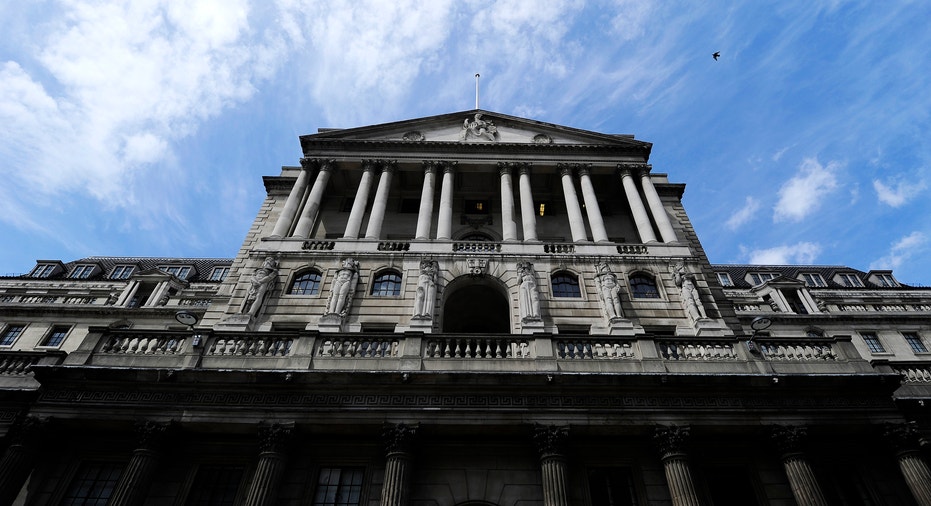BoE Leaves Rate Unchanged, Cuts Growth Outlook

The Bank of England cut its economic growth forecasts on Thursday due to a darker global outlook, and the lone policymaker who had backed a rate rise in recent months unexpectedly abandoned this position.
The central bank said sharp falls in oil prices and shares, and significant risks in emerging economies, weighed on the international outlook, though resilient domestic demand should ensure British growth still remained near its long-run average.
"Global growth has fallen back further over the past three months as emerging economies have generally continued to slow and as the U.S. economy has grown less than expected," the BoE said in its quarterly forecast.
The central bank said its Monetary Policy Committee had voted 9-0 this week to keep rates on hold at a record-low 0.5 percent, where they have been for almost seven years.
MPC member Ian McCafferty, who had voted for a rate rise since August, unexpectedly dropped his call.
"The more prolonged period of low inflation suggested that the pick-up in the pace of wage growth would be initially more muted than previously expected," he was recorded as saying in minutes of the BoE's policy discussions.
Sterling lost ground against the euro and British government bonds briefly rallied against euro zone debt on the prospect of a more distant British interest rate rise.
"McCafferty felt that the economy is not in a state to support the beginning of the hiking cycle. Overall, this supports our view that a hike is off the table until Q4 2016," Barclays economist Andrzej Szczepaniak said.
The central bank said interest rates were still more likely than not to rise gradually over the next three years. But it appears in no rush to follow the U.S. Federal Reserve, which raised rates in December, just before the latest market turmoil.
The dollar fell sharply on Wednesday, after a Fed official said the central bank may have to take more account of tighter monetary conditions going forward.
Sterling has weakened by more than 3 percent over the past three months. The BoE said this reflected concerns about global growth, lower interest rate expectations and possibly uncertainty about Britain's referendum on leaving the European Union, which is likely to take place in the middle of this year.
In the middle of last year, when Britain appeared to be enjoying rapid economic growth, central bank governor Mark Carney had started to lay groundwork for an interest rate rise -- but as on previous occasions he has had to put this on hold.
Slowing global growth, led by emerging markets such as China, tumbling oil prices and weaker wage growth all pointed to inflation staying close to record-low levels for longer and caused financial markets to push back their bets on a BoE rate rise until late 2018 in recent days.
The BoE's own economic forecasts -- which are based on an earlier market assumption of a rate rise in the second half of 2017 -- show the weakest outlook for growth in nearly three years.
The BoE forecast Britain's economy would grow 2.2 percent this year and 2.3 percent in 2017, down from forecasts of 2.5 percent and 2.6 percent in November and barely changed from 2015, when growth disappointed expectations.
Consumer price inflation is forecast to stay below 1 percent through 2016 -- longer than previously thought -- but then is forecast to rise to just over 2 percent in two years' time, similar to the last set of forecasts.
Two weeks ago BoE Governor Mark Carney said he wanted to see
British growth rise above its long-run average, a pick-up in wages and core inflation nearer 2 percent before he would back a rate rise.
The BoE also cut its forecasts of wage growth on Thursday, predicting it would pick up to 3 percent this year from 1.75 percent estimated for the end of last year. November's forecasts had shown wage growth around three quarters of a percentage point higher.
Policymakers said there was some sign that low headline inflation was weighing on wage deals, but that they expected this to reverse once the temporary effects of falling oil prices stopped weighing on inflation.
(Additional reporting by Andy Bruce)



















